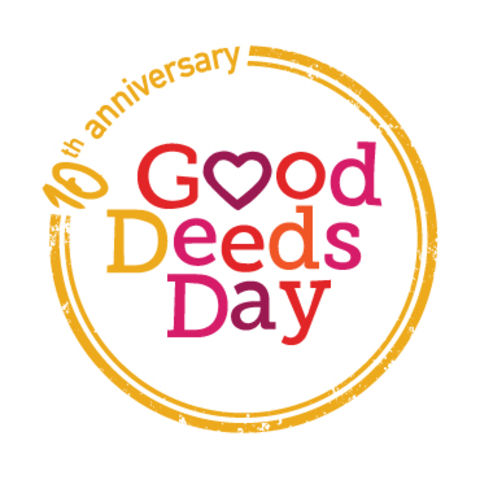On April 10th, 2016, do-gooders in 70 different countries set out on mission: do a good deed. This year the “Good Deeds Day” organization celebrated its 10th anniversary of making the world a better place, one project at a time. The global initiative was taken on by Israeli businesswoman and philanthropist, Shari Arison, whose vision was to bring positive change to the world. The first “Good Deeds Day” took place in Israel in March of 2007 and boasted 7,000 volunteers working a collective 21,000 hours on 130 different projects. Since then, Good Deeds Day has expanded to 70 different countries, with approximately 1.5 million participants working on thousands of projects.
Good Deeds Day participants usually lend their helping hands in environmental projects such as beach cleanups or park renovations, visiting local nursing or old-age homes, collecting and distributing food, clothing, shoes, and/or other supplies to in-need individuals or families, and participating in educational initiatives. All of these are only some examples in which participants of International Good Deeds Day help improve our global community.
Having participated in numerous “Good Deeds” projects since first hearing about the initiative in 2010, I can say that this Israeli startup has been relatively successful in engaging youth in their local communities and opening the eyes of the younger generation to the less fortunate population of the world. With a new generation that’s growing into a world of narcissism, days like “Good Deeds Day” are becoming necessary to force young people to see not only that they have the power to improve the lives of those less fortunate, but also that the world thrives on the good deeds of its inhabitants.
With young people so focused on their image in the world of social media, the hashtag #GoodDeedsDay becomes a tool for both the organization and its millennial and post-millennial participants. When teenagers take part in Good Deeds Day, rarely do they neglect to post about their “good deed” on social media, whether it be Instagram, Twitter, Snapchat or some other social media platform. More often than not they will share their act of kindness with their social network, adding #GoodDeedsDay as a nice decoration on their profiles, as well as perhaps to convince themselves that they are now advocates for social justice, environmental sustainability, education equity and the like. According to web analytics site “Keyhole,” almost 2 million people were greeted with #GoodDeedsDay somewhere on their social media news feeds in the past two weeks. This form of free advertisement serves both the social media user and the cause.
Throughout my participation in Good Deeds Day projects over the past few years, I have begun to doubt the significance of similar volunteering initiatives. Usually, youth groups, religious congregations and other clubs and organizations who participate in Good Deeds Day take on tasks that are outside of their typical, day-to-day activities. This often brings about a large amount of confusion, and logistically, organizing Good Deeds Day becomes a frantic nightmare. Finding non-profits who can provide one-time projects for large groups of people—sometimes varying in age and physical ability—is both daunting and challenging at best. Organizing equipment, delegating tasks, keeping participants busy, all while creating as little chaos as possible is difficult. Every year during this day, I ask myself if the good deed balances out the chaos, and if these one time projects are really helpful in the grand scheme of things. I am reminded and marginally comforted by the words of the Talmud: “And whoever saves a life, it is considered as if he saved an entire world” (Yerushalmi Talmud 4:9).
I conclude this article with the notion that while Good Deeds Day is not the ideal solution to world hunger, pollution, education inequity, and other global issues, the fact that Good Deeds Day’s net effect on the world is positive encourages us to expand the Good Deeds initiative and continue doing good things for the world. While this one-time treatment will never cure the troubles of the planet and the human race, they are small steps forward. I give all credit to Shari Arison, who has created a worldwide movement over the last 10 years, and wish her and the Good Deeds Day project only the best. Once again, Israel, a small player in the global community, has created huge and lasting impacts on society. Let this story be a metaphor for the success every person is capable of: However small and insignificant you may feel, you can start something huge and make the world a better place.

